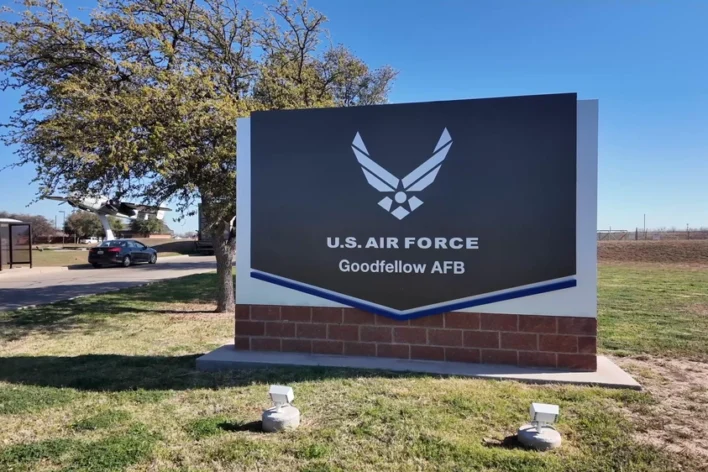On-Base Jobs for Military Spouses

Finding and keeping a job as a military spouse is challenging. Frequent permanent change of station moves and the nature of military life in general make career continuity difficult.
Many military spouses choose to work on the military base to which they are assigned, especially those who must relocate to an overseas location, such as Japan, Germany, or Spain. What kinds of job opportunities exist for military spouses at military bases? We examine the options and the types of positions a military spouse might be offered, depending on where they apply.
Federal Employment for Military Spouses
Many jobs located on a military installation are federal positions. These roles are essential to the daily operation of the base and the execution of its mission. They generally fall into two distinct funding categories: Appropriated Fund and Non-Appropriated Fund jobs.
When you apply for jobs such as administrative support for base agencies, or when you apply for work at a Child Development Center or a base Fitness Center, there are specific procedures and requirements depending on whether they are considered “Appropriated Fund” jobs or “Non-Appropriated Fund” jobs.
Why do we mention that here? Because you will find job openings advertised as either type of job. Knowing what it means to apply for an appropriated fund job versus a non-appropriated fund option makes all the difference in some cases, depending on the applicant or the position open.
Appropriated Fund (APF) Positions
Appropriated Fund jobs are the most traditional form of federal employment. They are funded directly by Congress through tax dollars and are integral to the government’s functions. These positions are often referred to as General Schedule (GS) or Federal Wage System (FWS) jobs. Military spouses seeking these roles will use USAJOBS.gov, the official employment site for the U.S. federal government.
The career fields for APF positions are diverse and often mirror those found in any city’s civil service. Common job types include:
-
- Administrative and Clerical Support: Roles such as office secretaries, administrative assistants, and program analysts are present in nearly every command and directorate on a base.
- Logistics Management: These positions involve managing the vast supply chain that supports the military, including supply clerks, technicians, and logistics specialists.
- Healthcare: On-base medical clinics and hospitals employ a large civilian workforce of registered nurses, medical technicians, and healthcare administrators.
- Human Resources: Civilian HR professionals manage the hiring, benefits, and employee relations for the federal workforce on the installation.
A significant advantage for military spouses applying for APF jobs is Military Spouse Preference (MSP). This program grants eligible spouses a hiring preference for certain positions, providing a valuable advantage in a competitive application process.
Non-Appropriated Fund (NAF) Positions
Non-Appropriated Fund positions are supported by revenue generated from on-base programs and services. These are still federal jobs, but their funding comes from the purchases made by service members and their families at base facilities. The organizations that fall under the NAF umbrella are collectively known as Morale, Welfare, and Recreation (MWR) or, in the Air Force, Force Support Squadron (FSS).
NAF employment is often more flexible and can be an easier entry point into the on-base workforce. Openings are typically posted on individual installation NAF Human Resources websites rather than on USAJOBS. The types of jobs are focused on community and family support:
-
- Child and Youth Services: These are some of the most numerous NAF jobs, including childcare providers at Child Development Centers (CDCs) and youth program assistants.
- Fitness and Recreation: Positions at base gyms, pools, and outdoor recreation facilities range from fitness instructors to recreation aides.
- Hospitality and Food Service: NAF employers operate on-base restaurants, snack bars, bowling centers, and lodges, creating jobs for cooks, cashiers, and hospitality associates.
- Retail and Clerical: MWR offices and facilities require administrative staff to manage their diverse programs.
NAF positions often offer flexible schedules, which can be ideal for spouses managing family life alongside their careers. Many NAF jobs also have their own version of spouse preference.
>> Turn your resilience into career success. Join CareerRecon today and discover flexible jobs, career resources, and training opportunities designed just for military spouses.
The Exchange and the Commissary
Beyond direct government roles, two of the largest employers on any military base are the commissary and the exchange. These organizations provide essential retail and grocery services to the community.
Army & Air Force Exchange Service (AAFES)
Operating as the military’s department store, AAFES (or simply “the Exchange”) is a massive retail organization. It runs the main Base Exchange (BX) or Post Exchange (PX), as well as smaller convenience stores, gas stations, and food court franchises on Army and Air Force installations worldwide.
The Navy Exchange Service Command (NEXCOM) and Marine Corps Community Services (MCCS) serve a similar function for the naval services.
Careers with the Exchange are primarily in retail and service fields:
- Retail Operations: Jobs include cashiers, stockroom workers, and sales associates.
- Food Service: The Exchange manages many on-base fast-food franchises, employing crew members and managers.
- Services Management: This includes managing operations like barber shops, salons, and other on-base concessions.
One of the key benefits of working for the Exchange is employment continuity. As a global organization, spouses can often transfer to a new Exchange facility when they relocate to a new duty station.
Defense Commissary Agency (DeCA)
The Defense Commissary Agency (DeCA) operates the grocery stores on military installations. Unlike the Exchange, which is a NAF entity, DeCA is an Appropriated Fund agency. This means that jobs at the commissary are federal APF positions and must be applied for through USAJOBS.gov.
The types of jobs available are similar to those in any civilian supermarket:
- Sales Store Checker: The most common position, responsible for operating registers.
- Store Worker: These employees are responsible for stocking shelves and maintaining the store’s inventory.
- Support Roles: Positions in receiving, administration, and management are also available.
Because commissary jobs are APF, military spouses can use Military Spouse Preference when applying, giving them an important advantage in securing these stable and convenient on-base roles.
Vendors and Contractors
A significant number of jobs on a military base are not with the government but with private companies that operate on the installation. These can range from large defense contractors to small local businesses.
While you may not be able to use military spouse benefits to claim hiring preference with a contractor in the same way as with an application to a state or federal agency, your status as being assigned to the base (rather than being an “outside hire”) may give you an advantage depending on circumstances.
- Defense Contractors: On many bases, large companies hold contracts to provide essential services, such as information technology support, base maintenance, and logistical services. These companies often seek employees with specific technical skills and security clearances.
- On-Base Banks and Credit Unions: Financial institutions like Navy Federal Credit Union or Armed Forces Bank have physical branches on installations and hire tellers, loan officers, and member service representatives from the local community.
- Service and Retail Vendors: The food courts, malls, and standalone businesses on a base are often operated by national chains or local entrepreneurs. These include restaurants, coffee shops, and small retail stores that hire locally for various service positions.
Finding these jobs requires a different approach. They are not listed on USAJOBS. The best resource is often the installation’s Employment Readiness Program, located at the Airman & Family Readiness Center, Army Community Service, or Fleet and Family Support Center. These offices provide job search assistance and often maintain contact with on-base vendors and contractors who are hiring.
Stateside vs. Overseas Employment
Where a military family is stationed has a large impact on a spouse’s employment journey. The rules and opportunities differ greatly between bases in the continental U.S. (CONUS) and those outside the continental U.S. (OCONUS).
Stateside (CONUS) Employment
Within the United States, military spouses who are U.S. citizens have access to the full spectrum of on-base and off-base jobs.
Federal hiring preferences apply, and there are no legal restrictions preventing a spouse from working for any local business. The primary challenge is often the local economy and competition for available positions.
Overseas (OCONUS) Employment
Finding a military spouse’s job overseas is more complex. The right to work is governed by international treaties known as Status of Forces Agreements (SOFAs). These agreements between the U.S. and the host nation dictate the legal status of military members, their families, and civilian employees.
Under most SOFAs, military spouses are restricted from working on the local economy without a separate work visa, which can be difficult to obtain. This means that for many spouses, employment is limited to on-base positions with the U.S. government or its contractors.
- Federal Jobs: APF and NAF positions are highly sought after by spouses overseas. Competition can be intense due to the limited number of openings.
- Contractors and Vendors: On-base contractors and AAFES are also major employers of spouses, providing valuable opportunities that do not require host-nation work permits.
Professional licensing is another significant hurdle overseas. A teaching, nursing, or cosmetology license from the United States may not be recognized by the host country, further limiting off-base career options. Due to these challenges, installation employment programs are a vital resource for spouses stationed abroad.
RELATED:
>> Your career doesn’t have to wait on military life. Join CareerRecon today and explore career paths and employers who value military spouses.
About the author
Editor-in-Chief Joe Wallace is a 13-year veteran of the United States Air Force and a former reporter/editor for Air Force Television News and the Pentagon Channel. His freelance work includes contract work for Motorola, VALoans.com, and Credit Karma. He is co-founder of Dim Art House in Springfield, Illinois, and spends his non-writing time as an abstract painter, independent publisher, and occasional filmmaker.


